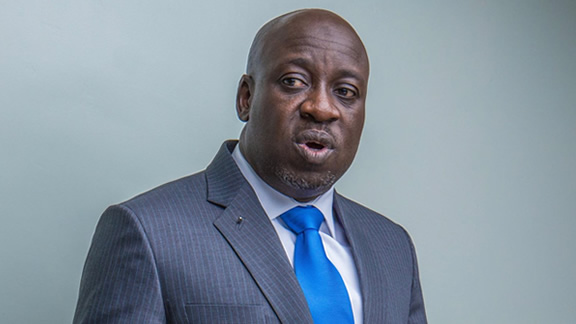The African Democratic Congress (ADC), a coalition-backed political party in Nigeria, has sought to downplay its failure to secure any seats in the August 16th by-elections. Party spokesman Bolaji Abdullahi attributed the poor showing to the party’s recent leadership transition, arguing that the by-elections occurred too soon after the new leadership took the reins. He emphasized that the party was not fully prepared for the contests and that the results should not be interpreted as a reflection of the ADC’s true potential. Abdullahi highlighted the fact that many of the candidates who contested the by-elections were not well-known to the newly installed leadership, further underscoring the party’s lack of preparedness. He asserted that the ADC should be judged based on its performance in future elections, for which the party intends to be thoroughly ready.
Abdullahi pointed out that the by-elections took place less than a month after the Independent National Electoral Commission (INEC) officially recognized the David Mark-led leadership of the ADC. This recognition formalized the positions of other key party officials, including Ogbeni Rauf Aregbesola as National Secretary, Dr. Ibrahim Mani as National Treasurer, Akibu Dalhatu as National Financial Secretary, and Professor Oserheimen Aigberaodion Osunbor as National Legal Adviser. With the leadership now firmly established, the party is embarking on a nationwide reconciliation and mobilization drive to bolster its presence across Nigeria ahead of the 2027 general elections.
The ADC spokesman articulated the party’s long-term strategy, emphasizing the importance of building a strong grassroots foundation rather than simply chasing short-term electoral victories. He envisions the ADC as a viable alternative for Nigerians seeking change in 2027. The party aims to position itself as a credible option for voters who may be dissatisfied with the performance of the ruling party. Abdullahi expressed hope that by 2027, Nigerians will critically evaluate the impact of the ruling party’s governance and consider the ADC as a compelling alternative.
The by-elections in question were held to fill legislative vacancies created by deaths or resignations following the 2023 general elections. The ruling All Progressives Congress (APC) emerged victorious in 12 out of the 16 contested seats. The All Progressives Grand Alliance secured two seats in Anambra State, while the Peoples Democratic Party (PDP) and the New Nigeria Peoples Party (NNPP) each won one seat in Oyo and Kano States, respectively. The ADC’s failure to secure any seats underscored the challenges faced by smaller political parties in Nigeria’s competitive electoral landscape.
Prior to Abdullahi’s explanation regarding the party’s lack of preparedness, the ADC had initially attributed its poor performance in the by-elections to various electoral malpractices, including widespread violence, vote buying, and irregularities allegedly perpetrated by the ruling APC. The party claimed that the elections were marred by voter intimidation, ballot box snatching, and failures of the Bimodal Voter Accreditation System (BVAS). These allegations were, however, denied by the APC. This initial response highlights the often contentious nature of elections in Nigeria and the frequent accusations of malpractice levelled against opposing parties.
In summary, the ADC’s leadership attributes its failure in the August by-elections to its recent leadership transition and the lack of preparedness that resulted. The party is now focusing on solidifying its leadership structure, mobilizing support across the country, and presenting itself as a viable alternative for the 2027 general elections. The ADC hopes that by 2027, Nigerians will seek a change in governance and see the party as a credible option. This strategic approach reflects a long-term vision for the party’s growth and influence within the Nigerian political landscape. The party’s earlier allegations of electoral malpractice, now seemingly superseded by the explanation of internal transition challenges, provide a glimpse into the complex dynamics of electoral politics in Nigeria.














